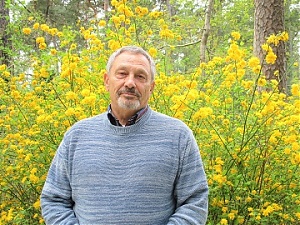EU – Baltic States, Financial Services, Funds, Innovations, Modern EU, Technology
International Internet Magazine. Baltic States news & analytics
Thursday, 22.01.2026, 18:33
EU research budget for the last Horizon-2020 year
 Print version
Print version |
|---|
In the last year of the Horizon budget for 2020, the
Commission will seek greater impact of its research funding by focusing on
fewer, but crucial, topics such as climate change, clean energy, plastics,
cybersecurity and the digital economy. It will also shape future research and
innovation directions in preparing the Horizon Europe, the next framework
programme for 2021-2027.
An important novelty under Horizon Europe will be the European
Innovation Council – a one-stop-shop for innovation funding to turn
science into new business and accelerate the scale-up of companies. The
European Innovation Council is already running in its pilot phase and
will in 2020 benefit from a budget of €1.2 bn.
More on Horizon 2020 program
Horizon 2020 is the EU's biggest ever research and
innovation framework program with a budget of €77 billion over seven years
(2014-20). EU funded research has contributed to major discoveries: at least 17
Nobel Prize winners received EU research funding prior or after their
award. From the end of 2014 up to June
2019, Horizon 2020 has provided SMEs with access to risk finance worth about €20
billion under the EU finance for innovators scheme (InnovFin). It has funded
more than 24 500 grants in total to the tune of €42.8 billion, of which almost
€7.1 billion went to SMEs. Over 5 000 ERC Principal Investigators in host
organisations and over 45 000 fellows under the Marie Skłodowska-Curie Actions
will receive almost €8.8 bn and €4.3 bn respectively.
Commissioner for research, science and innovation underlined
that the Horizon 2020 is going to generate
new knowledge and technologies with strong economic impact. According to the
Commission, for every 100 euro invested through Horizon 2020, about 850 euro is
expected to add to states’ GDP by 2030, creating millions of jobs too. With
this in mind, the EU is going to invest €100 bn for the next Horizon
Europe program in order to boost the member states’ competitiveness, innovation
capacities and scientific excellence.
Reference to: http://ec.europa.eu/research/participants/data/ref/h2020/wp/2018-2020/erc/h2020-wp20-erc_en.pdf
Focusing on the EU economic and political priorities
The 2020-work program is part of the EU budget for 2018-20
and the Commission’s political priorities concentrated in the following four
areas: low-carbon, climate resilient research
with €3.7 billion; circular economy
research with €1 bn; digitising
and transforming European industry and services with €1.8 bn; and research issues in the “Security Union”
with €1 bn.
For example, in 2020, €206 mln is earmarked for projects
to transform sectors that are traditionally energy
intensive into competitive, low-carbon and circular industries and to
significantly lower their environmental footprint.
About €132 mln will support the development and
production in the EU states the next
generation of batteries, as part of the drive towards a low-carbon,
climate-resilient future.
Ten new topics on plastics with a total budget of €135
mln will contribute in different ways to the EU plastics strategy.
Artificial intelligence, which is at the core of the present
advanced research, has a budget of €396 million and €116 mln is earmarked
for developing new capabilities in combating and preventing cybercrime.
On the EU’s plastic
strategy in:
https://ec.europa.eu/commission/news/eu-plastics-strategy-2018-nov-20_en
Besides, the last year in the Horizon 2020 program will
continue to fund “curiosity-driven science” -often referred to as “blue sky
science” or “frontier research”. These funds will support excellent researchers
with over €2.2 bn: e.g. Marie Skłodowska-Curie Actions, which fund
fellowships for researchers, will receive additionally over €1 bn.
The 2020 program will also strengthen international
cooperation in research and innovation. It will invest over €550 mln during
2020 in mutual cooperation projects: e.g. working with Africa on global health,
food and nutrition security, with the US, Canada and Japan on clean energy, and
with China on food production, biotech, energy, natural resources and
urbanisation.
Innovative entrepreneurs in the member states
are getting support too: the Commission has launched the first phase of the
European Innovation Council with the task of turning innovations into
businesses much faster. The EIC Accelerator pilot announced in
March 2019 will test a grant and equity blended financing model, paving the way
for a fully-fledged European Innovation Council in the next EU research and
innovation framework programme, Horizon Europe.
Future perspectives
It is expected that the next EU science and research program
–Horizon Europe- will invest about €209 million for actions on food
and natural resources. Some co-creating methods and approaches are
being tested through cross-cutting calls on interdisciplinary challenges such
as “Competitive, Low Carbon and Circular
Industries”, with lump-sum pilot financing projects. In addition, policy areas with increased prominence in the
Horizon Europe will be addressed, such as smart buildings, airports and the
micro-biome.
More in the following web-links:
Factsheet: Focus areas;
Factsheet: European Innovation Council;
Factsheet: lump sum pilot;
Country participation in H2020;
Horizon 2020 website; and
General reference:
https://ec.europa.eu/info/news/commission-invest-eu11-billion-new-solutions-societal-challenges-and-drive-innovation-led-sustainable-growth-2019-jul-02_en








 «The Baltic Course» Is Sold and Stays in Business!
«The Baltic Course» Is Sold and Stays in Business!

